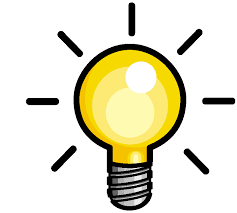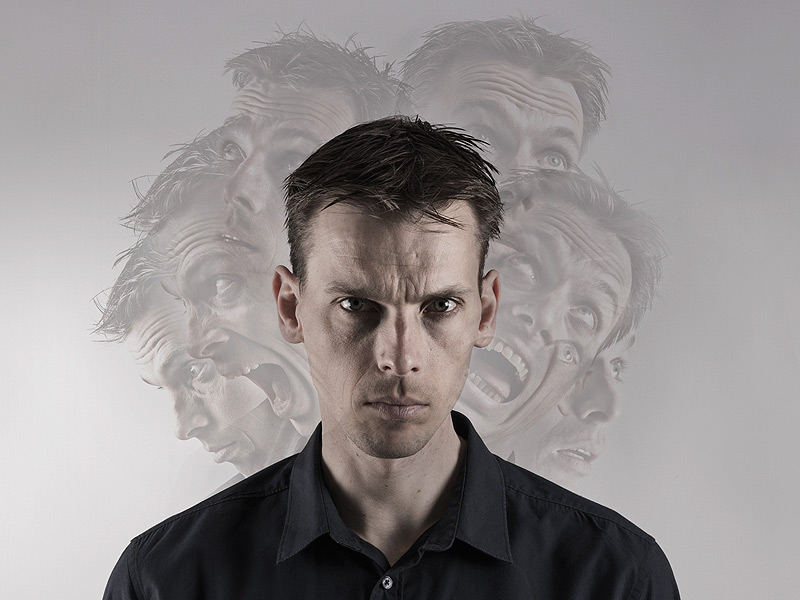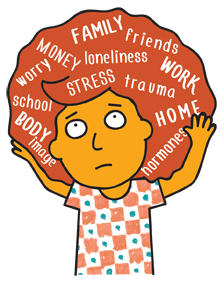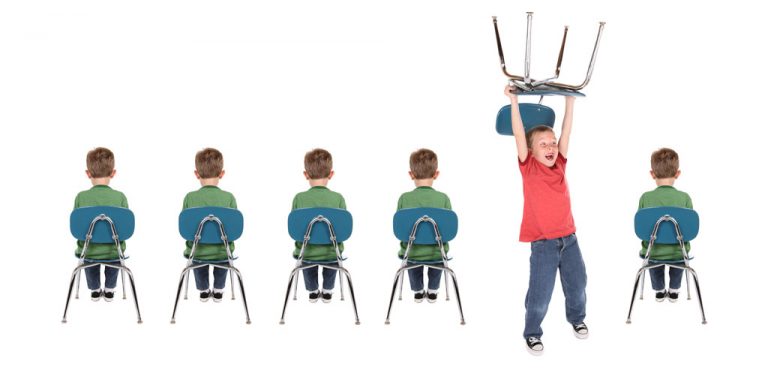Understanding Common Psychiatric Disorders: An Essential Guide
Practical Tips for Managing Common Mental Health Disorders

Common Psychiatric Disorders
In recent years there has been a significant rise in the prevalence of psychological disturbances and psychiatric disorders. Although this can be mostly accounted for by the changing lifestyles leading to stress most of it is due to rising public awareness and acceptance of mental illness. Here are a few self-help tips for some common mental illnesses:
Depression

a) Depression:
Self-help tips for Depression:
Here are some tips that may help you or a loved one during treatment for depression:
- Try to be active and exercise.
- Set realistic goals for yourself.
- Try to spend time with other people and confide in a trusted friend or relative.
- Try not to isolate yourself, and let others help you.
- Expect your mood to improve gradually, not immediately.
- Postpone important decisions, such as getting married or divorced, or changing jobs until you feel better. Discuss decisions with others who know you well and have a more objective view of your situation.
- Continue to educate yourself about depression.
Mania

Bipolar Disorder Treatment In Delhi Mind Clinicb) Bipolar Disorder :
Self-help tips for bipolar disorder:
Keeping a Life Chart: Even with proper treatment, mood changes can occur. Treatment is more effective when a client and doctor work closely together and talk openly about concerns and choices. Keeping a life chart that records daily mood symptoms, treatments, sleep patterns, and life events can help clients and doctors track and treat bipolar disorder most effectively.
Maintaining Body Rhythms: Maintaining Well Balanced Sleeping And Dietary Habits.
Avoiding drugs: helps prevent triggers.
- Set mutual goals of treatment with your Doctor/ Therapist
- Try to be active and exercise regularly
- Maintain adequate sleep and bodily rhythms or cycles
- Try to spend time with other people and confide in a trusted friend or relative.
- Try not to isolate yourself, and let others help you.
Seeking good social support.
Bipolar disorder

Addictive disorders

Addictive disorders:
Preventing a relapse
Once you’ve been addicted to a drug, you’re at high risk of falling back into a pattern of addiction. If you do start using the drug, it’s likely you’ll lose control over its use again — even if you’ve had treatment and you haven’t used the drug for some time.
- Stick with your treatment plan. Monitor your cravings. It may seem like you’ve recovered and you don’t need to keep taking steps to stay drug-free. But your chances of staying drug-free will be much higher if you continue seeing your therapist or counselor, going to support group meetings and taking prescribed medication.
- Avoid high-risk situations. Don’t go back to the neighborhood where you used to get your drugs. And stay away from your old drug crowd.
- Get help immediately if you use the drug again. If you start using the drug again, talk to your doctor, your mental health professional or someone else who can help you right away.
The best way to prevent an addiction to a drug is not to take the drug at all. If your doctor prescribes a drug with the potential for addiction, use care when taking the drug and follow the instructions provided by your doctor.
Preventing drug misuse in children and teenagers
Take these steps to help prevent drug misuse in your children and teenagers:
- Communicate. Talk to your children about the risks of drug use and misuse.
- Listen. Be a good listener when your children talk about peer pressure, and be supportive of their efforts to resist it.
- Set a good example. Don’t misuse alcohol or addictive drugs. Children of parents who misuse drugs are at greater risk of drug addiction.
- Strengthen the bond. Work on your relationship with your children. A strong, stable bond between you and your child will reduce your child’s risk of using or misusing drugs.
Schizophrenia

Schizophrenia – Self HelpTips
- Try to be active and exercise.
- Set realistic goals for yourself.
- Try to spend time with other people and confide in a trusted friend or relative.
- Try not to isolate yourself, and let others help you.
- Expect your symptoms to improve gradually, not immediately.
- Postpone important decisions, such as getting married or divorced, or changing jobs until you feel better. Discuss decisions with others who know you well and have a more objective view of your situation.
- Continue to educate yourself about schizophrenia.
- Avoid smoking, drinking alcohol or taking drugs like cannabis.
Anxiety disorders

Anxiety Disorders: anxiety is actually an adaptive response of the body, meant to prepare the body for any danger. Howsoever, anxiety may become a disorder when it becomes excessive, occurs in relation to non-threatening stimuli and impairs an individual’s functioning.
Self Help Tips
- Try to be active and exercise.
- Practice yoga, deep breathing relaxation.
- Set realistic goals for yourself.
- Try to spend time with other people and confide in a trusted friend or relative.
- Take one day at/ one task at a time.
- Try not to isolate yourself, and let others help you.
- Pursue a hobby.
- Avoid escaping from anxiety-provoking scenarios, rather attempt supported and guided inclusion.
- Continue to educate yourself about anxiety.
Obsessive Compulsive Disorder:
Self-help tips for OCD:
Here are other tips that may help you or a loved one during treatment for OCD
- Be active and alert including physical exercise
- Try not to isolate yourself, and let others help you.
- Try to spend time with other people and confide in a trusted friend or relative.
- Continue to educate yourself about OCD
- Maintain a regular daily schedule and keep yourself occupied and engaged.
- Be well assured that OCD is a treatable illness, and will improve if help is sought on time
- Many times it would help to tell yourself that it’s not you who is behaving erratically it’s your OCD, your illness
- Be assured that this is not a quirk or: just in the mind, please go ahead and seek help
- Encourage your friend/family to seek a consultation if he seems to be having any of OCD symptoms
- Set realistic goals of treatment and discuss them with your Doctor/therapist
Childhood Psychiatric disorders
Childhood psychiatric illnesses:
Children too may suffer from depression, anxiety, panic, OCD, schizophrenia. Howsoever, there are certain illnesses restricted to these age groups.

Attention Deficit Hyperactivity Disorder:
Self help tips
For Kids:
Parents and teachers can help kids with ADHD stay organized and follow directions with tools such as:
- Keeping a routine and a schedule. Keep the same routine every day, from wake-up time to bedtime. Include times for homework, outdoor play, and indoor activities. Keep the schedule on the refrigerator or on a bulletin board in the kitchen. Write changes on the schedule as far in advance as possible.
- Organizing everyday items. Have a place for everything, and keep everything in its place. This includes clothing, backpacks, and toys.
- Using homework and notebook organizers. Use organizers for school material and supplies. Stress to your child the importance of writing down assignments and bringing home the necessary books.
- Being clear and consistent. Children with ADHD need consistent rules they can understand and follow.
- Giving praise or rewards when rules are followed. Children with ADHD often receive and expect criticism. Look for good behavior, and praise it.
For Adults:
A professional counselor or therapist can help an adult with ADHD learn how to organize his or her life with tools such as:
- Keeping routines
- Making lists for different tasks and activities
- Using a calendar for scheduling events
- Using reminder notes
- Assigning a special place for keys, bills, and paperwork
- Breaking down large tasks into more manageable, smaller steps so that completing each part of the task provides a sense of accomplishment.

